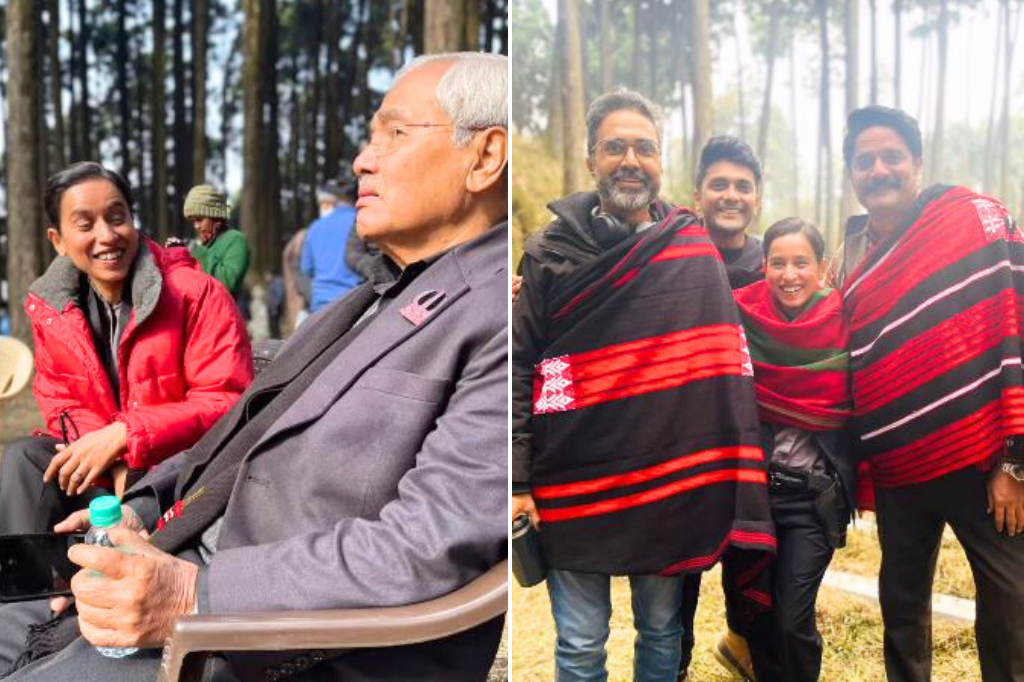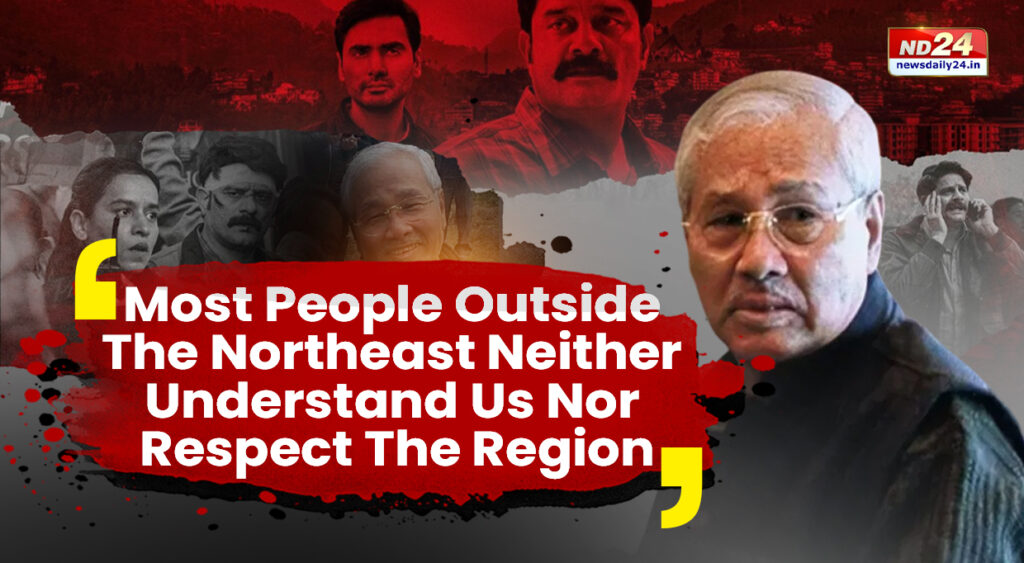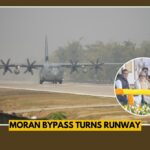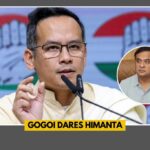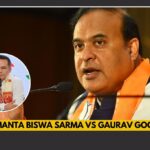Ketiaba upai nathakile maribole lage (You only kill when you are left with no option), says Uncle Ken in Nagamese to Inspector Hathi Ram Chaudhary, just moments before the credits roll in the final episode of Paatal Lok Season 2.
Paatal Lok Season 2, one of the year’s most anticipated shows, has received widespread praise for its gritty storytelling and strong performances. Created by Sudip Sharma and Avinash Arun Dhaware, the Amazon Prime Video series uses violence to reveal how ‘developmental politics’ often hides personal agendas- redemption, and immortality. The second installment explores the complex socio-political landscape of Nagaland in the Northeast and was shot in Kohima, Dimapur, Delhi, Kalimpong, and Darjeeling.
Rangthong Ken, aka Uncle Ken – played by veteran filmmaker from Assam, Jahnu Barua – represents the idea that heroes are a myth, and villains are rarely as they seem. Every moment is shaped by history, every story develops in parallel, and every action carries the weight of its consequences.
Uncle Ken’s character arc is pivotal in Season 2, especially as he navigates a delicate balance between local aspirations and government policies following the brutal murder of high-profile businessman-politician Jonathan Thom (Kaguirong Gonmei), whose death is central to the proposed Rs 20,000 crore Nagaland Business Summit.
Barua’s acting debut at the age of 72 has left a lasting impact. A director with 12 National Film Awards and Padma Shri and Padma Bhushan honours, Barua’s performance in Paatal Lok has been widely appreciated.
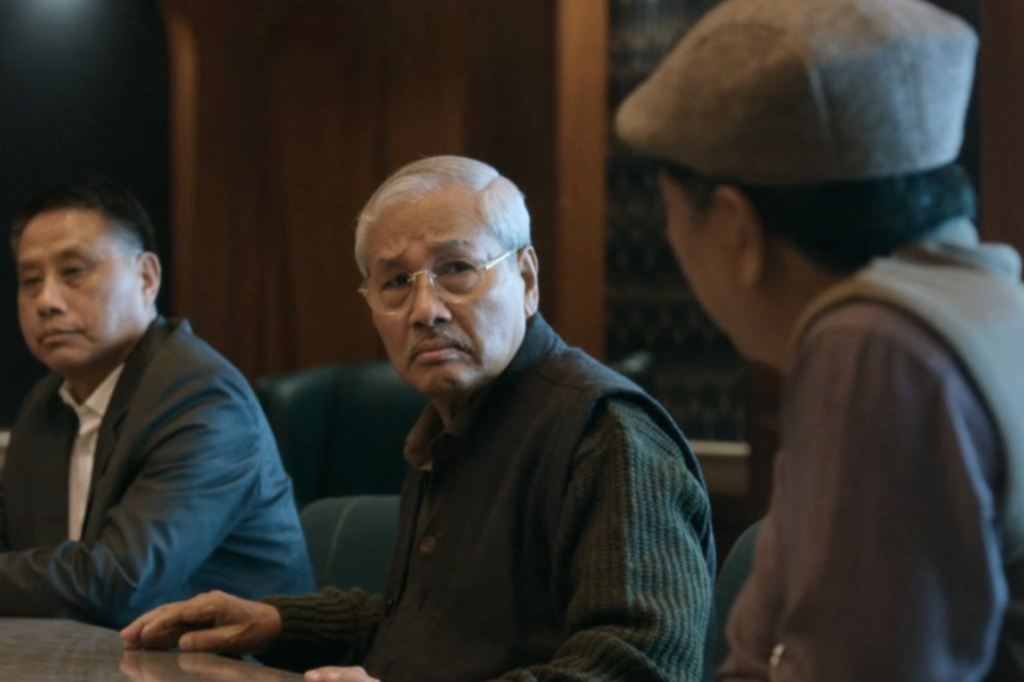
Speaking about his decision to take on the role, Barua laughs and says, “I have been approached many times to play characters from the Northeast, but I rejected them because they didn’t truly understand the region. Initially, I even said no to Paatal Lok. But when I was continuously pursued for the series, I thought of going through the script and found that the makers had made an honest effort to understand Nagaland and its issues… and I said yes. Another thing that I loved about the makers is the use of Nagamese in all the episodes.”
Barua appreciated how the series portrayed the region without caricature or stereotypes, saying, “It’s a fact that most people outside the Northeast neither understand us nor respect the region. Our local leaders must be held accountable for this unfortunate state of affairs.”
Uncle Ken’s character, as portrayed by Barua, symbolizes Nagaland’s conflict-ridden past and hopeful future. Barua’s portrayal of Ken, a mix of intellect, influence, and manipulation, makes him neither a villain nor a hero. Barua describes Ken as “as normal as you and me,” but a master of subtlety, making him both chilling and compelling. “Uncle Ken is not your typical crime lord or corrupt politician. He doesn’t have the ‘Godfather’ aura. He is flawed like you and me. You can’t judge him based on your moral compass; he has his reasons for doing what he does, just like you and me,” says Barua.
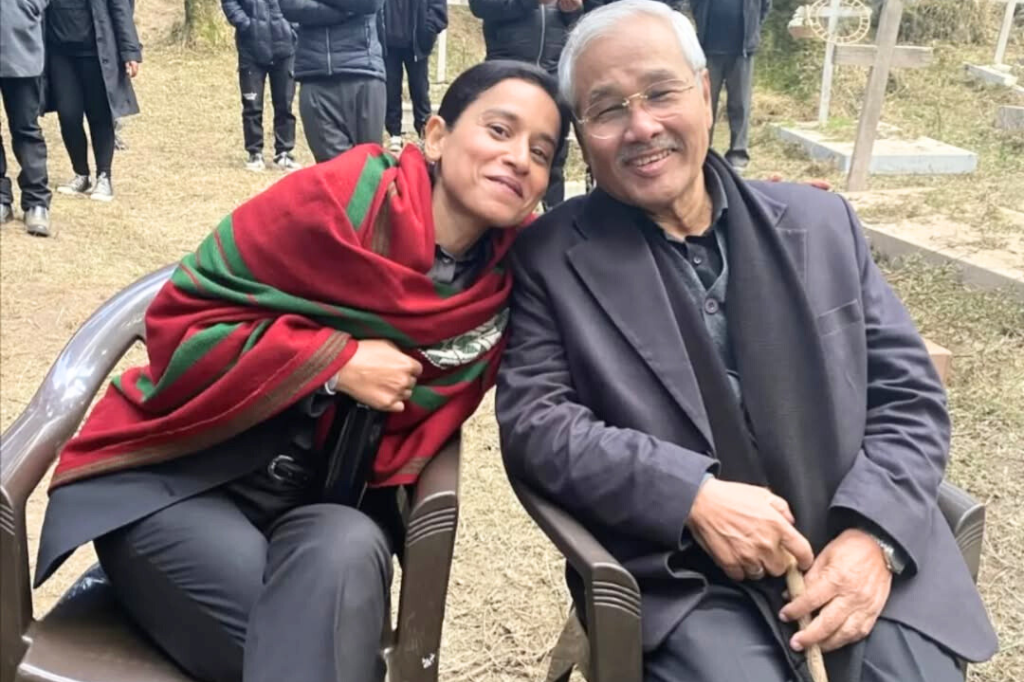
When asked if he drew from real-life experiences for his portrayal, Barua reflected, “Over the years, I’ve met many leaders from the Northeast. Young leaders are often passionate but lack an understanding of the sacrifices the older generation made. The young ones are often immature, impulsive, and aggressive, and it is up to the senior leaders how they channel their energy. Uncle Ken is a mix of local leaders from the region.”
Known for his storytelling prowess, Barua is appreciated for his expressive body language and restrained intensity that made Uncle Ken both terrifying and captivating. “Ken is the perfect formidable opponent to Hathi Ram, the cop with a conscience,” he adds.
Barua is known for films like Halodhia Choraye Baodhan Khai (1987), Firingoti (1992), Xagoroloi Bohu Door (1995), Maine Gandhi Ko Nahi Mara (2005), Konikar Ramdhenu (2003), Baandhon (2012), and Ajeyo (2014). He has been conferred Padma Shri in 2003 and Padma Bhushan in 2015. He served as chairman of the Indian Film Directors’ Association in 1993.
Barua, who began directing films in 1982, has won several international awards over the years.
When reflecting on the transition from directing to acting, Barua says, “I’ve always been a strict filmmaker, but being in front of the camera made me more sympathetic toward actors. It made me realize what they go through when the director shouts at them. Nonetheless, I enjoyed my stint as an actor.”
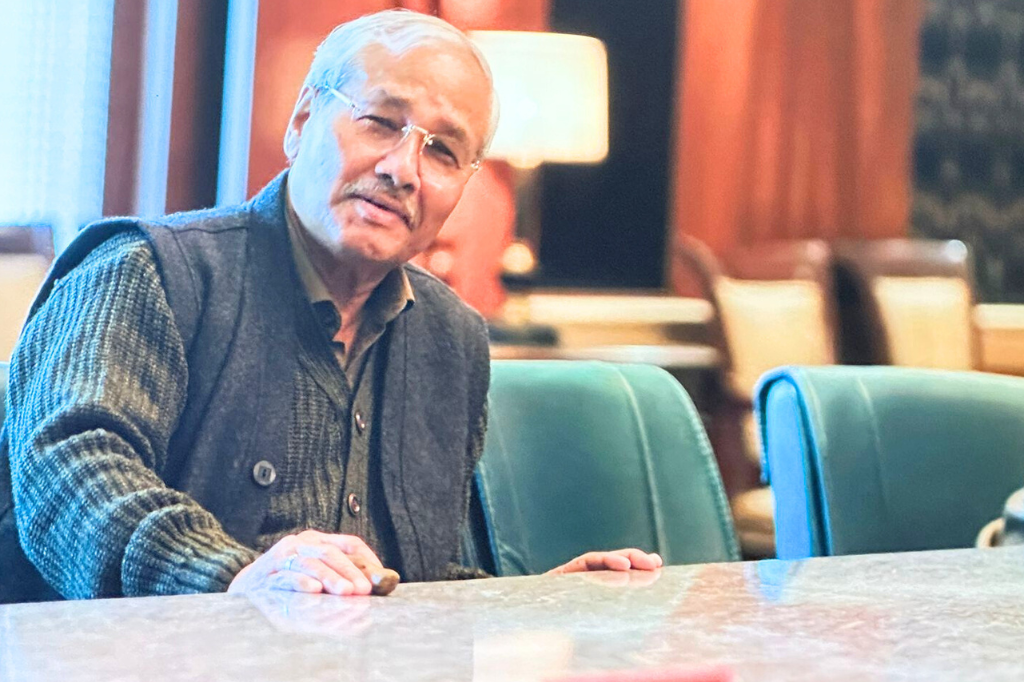
Barua also spoke fondly of working with actors like Jaideep Ahlawat, Ishwak Singh, Nagesh Kukunoor, and Tillotama Shome. “The entire cast was fabulous, and the makers were open to improvisation on set. I missed the casual ‘adda’ sessions, though, as the actors would quiet down when I entered, maybe out of respect for my age. I would’ve loved to know them personally,” he says.
He also praised the talented actors from Nagaland, saying, “The Northeast has no shortage of talent. The big screen is opening up to the region, and we should make the most of it. This is our chance to showcase our potential.” Barua also expressed his gratitude for the love Paatal Lok is receiving and said, “If there’s a role in a film or series that presents the Northeast as a character, not a prop, I’d be happy to contribute.”
Before concluding, Barua reflected on the phrase used by Uncle Ken and his protégé sniper Daniel Lecho (Prashant Tamang): ‘You only kill when you are left with no option.’ He shares, “Hope is more powerful than fear. We all cling to hope – it keeps us going. Even in the Mahabharata, Krishna advises Arjuna to first understand his ‘dharma’- duty or ethical responsibility – and then fight, if necessary, for the sake of ‘dharma’. How can Thom dare to ruin Ken’s sacrifices? In a conflict-ridden region, hope is the oxygen. The price of peace is often blood.”
